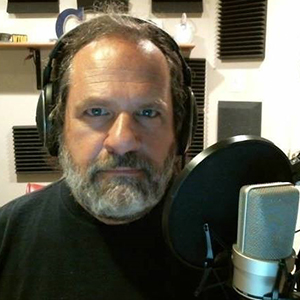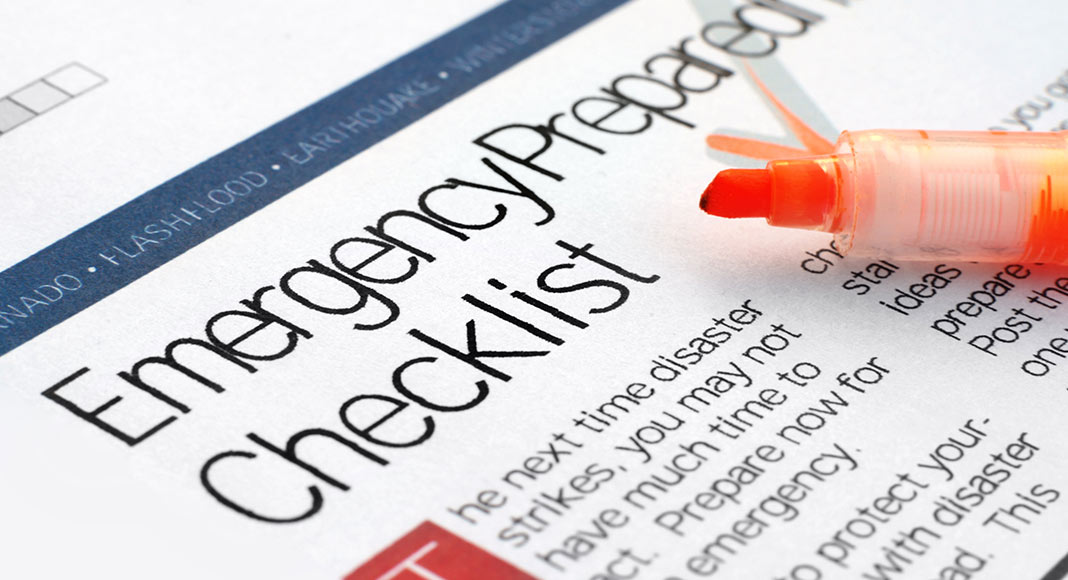Natural disasters can be devastating in so many different ways.
If you’re self-employed, and you work from your home studio, how do you get the job done and remain safe?
In this article
- Preparing for The Worst As a Voice Actor
- Protect What Matters — Your Family, Your Voice Over Gear, and Your Home
- Develop a Contingency Plan In Case You Find Yourself on the Move
- Ultimately, Planning Is How You Can Best Protect Yourself
- About Tommy Griffiths
Guest blogger Tommy Griffiths shares how he prepared to keep serving his clients during Hurricane Irma, as well as outlines tips that you can use to keep your voice over business up and running during a natural disaster.
Preparing for The Worst As a Voice Actor
With slashing winds, devastating floods and prolonged power outages, Hurricane Irma ravaged Florida from the Keys to Jacksonville Beach, where I live and run my full-time voice over business.
I’m grateful we only lost a garage door, a few trees and power for 24 hours. Most of all, though, I’m grateful that my family is safe.
This storm was so much worse for millions of Floridians.
I was prepared for many circumstances with supplies and an evacuation plan. My family’s safety was my priority.
But what about my voice over business? My home studio? My gear? My only means of income?
How do I record without power or internet access, possibly for weeks? What about clients who depend on me regularly or the coaching and demo production scheduled over the next few weeks?
Whether facing the threat of hurricanes, earthquakes, or wildfires, many of us are vulnerable to natural disasters. But with planning and preparation, in many cases, you can continue running your voice over business uninterrupted.
Here’s how I did it.
Protect What Matters — Your Family, Your Voice Over Gear, and Your Home
Your family: Possessions can be replaced. Human life cannot be. Above all else, make sure you and your family are out of harm’s way. Stay informed and take the threat seriously. Follow instructions from civil authorities. Evacuate if you’re told to.
Your gear: Take measures to protect your recording gear. I have a rack-mounted PC built for audio production that I unplugged, wrapped in a tarp and moved to an elevated location. I did the same with my recording peripherals – mics, monitors, pre-amp, etc.
Insurance: Check your homeowner’s policy or renter’s insurance to make sure your gear is covered. Typically, you are, but don’t wait until the last minute. Incidentally, flood insurance is very expensive and sometimes impossible to get; it depends on where you live. Don’t assume your homeowner’s or renter’s insurance protects you from rising waters.
Develop a Contingency Plan In Case You Find Yourself on the Move
Invest in a portable studio: There is a chance you might lose your recording gear, or may not have access to it for several weeks. I have a good laptop, portable preamp, and quality mic packed in a small case with rollers built to protect these items during travel. Make sure you’ve got extra mic cables, electrical cords and a small desktop mic stand.
Find and create an alternative recording environment: If you need to leave your home, you will be without your studio. Plan, and you can move to a hotel, or a family member or friend’s house with a suitable area for your portable studio. Blankets, pillows and furniture cushions work well to manage acoustics.
Communicate: I have clients who depend on my voice services regularly. I let them know that my services would be impeded during the actual storm, and perhaps briefly after in the event of a power and internet outage – but no more than 24 to 36 hours. Don’t assume your clients know you’re affected by a disaster. As soon as you are back online, and able to resume recording, tell them. Typically, you’ll be received with understanding and compassion.
Ultimately, Planning Is How You Can Best Protect Yourself
Finally, be safe: Don’t put yourself at risk to complete work.
I’m grateful that damage to my home was manageable, and that the power (and air conditioning) is back on.
Because I planned ahead and took precautions to protect myself, my voice over business continued with minor inconvenience and little delay.
About Tommy Griffiths

For 30 years Tommy has been voice acting. He’s brought to life the message of hundreds of major clients like Nissan, Coca-Cola and Harvard University. He’s also voiced sales presentations, promos, and commercials for radio and TV for brands like History Channel, Dodge Ram Trucks, Chevy Camaro and Discovery Channel. He’s been the voice of the Dad on “Caillou” for the games and e-learning series and he has coached and produced demos for hundreds of voice actors at all levels, worldwide, as well as providing audition diagnoses for Voices members.

Comments
All the sad news from the south makes a bad snow blizzard seem trivial. A nice warm bed and a BBQ TO COOK IS NOT THAT BAD
Makes Canada sound like paradise, Dr. Pilon!